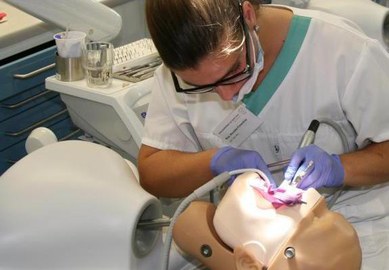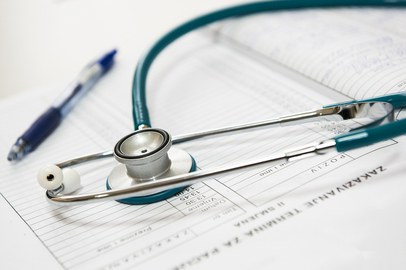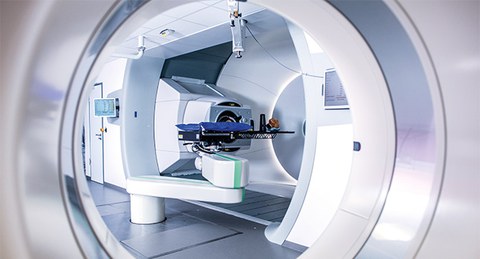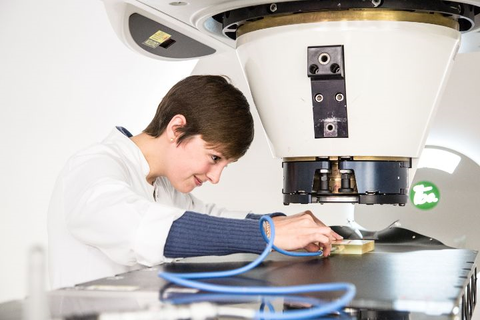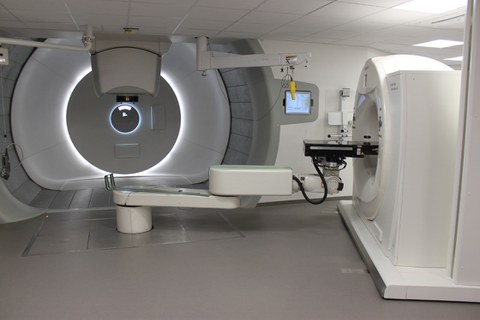Medical Radiation Sciences (master's degree)
Table of contents
Before starting the degree Programme
German and international applicants who have acquired their university entrance qualification in Germany (“Bildungsinländer”, domestic students) usually apply via portal 7 of the Online Application Portal of TU Dresden
The application period begins on 1st June and ends on 15th July of every year.
Applicants from abroad who have acquired their university entrance qualification abroad apply via uni-assist
The application period begins on 1st April and ends on 31st May of every year.
Please include the filled-in Antrag zur Eignungsfeststellung (Application form for determining suitability) in your application.
Interviews for determining suitability are used to select candidates for admission to the degree programme. To be able to start the programme, you must have a first degree in a scientific or technical subject that qualifies you for a profession (e.g. Bachelor’s), as well as proof of German knowledge at least with level C1.
The Master’s degree programme “Medical Radiation Sciences” was established in 2005 and is in great demand, especially because it allows for a parallel acquisition of the specialist knowledge. This model of academic training of expert medical physicists was specially developed at OncoRay in Dresden.
The Master’s degree programme “Medical Radiation Sciences” is geared primarily towards young scientists and engineers after the first degree that qualifies them for a profession. The objective is to train specialists for the medical application of ionising radiation, with a further specialisation in physics. This goal is achieved by teaching the relevant basics of physics, chemistry, biology, technical sciences and medicine. The focus is on the diagnosis and treatment of cancer through radiotherapy - the field with the greatest need for specialists - as well as on nuclear medicine and medical imaging. Overall, the contents consistently follow the catalogue of teaching material for continuing education of the Deutsche Gesellschaft für Medizinische Physik (DGMP) (German Society for Medical Physics).
During the degree programme
Consecutive Master’s programme, 120 Credit Points, application-orientated, duration 4 semesters, enrolment annually in the winter semester after suitability has been determined, no tuition fees
Modules
Anatomy and Physiology (5 Credit Points)
Cell and Molecular Biology (5 Credit Points)
Atomic and Nuclear Physics (5 Credit Points)
Interaction Radiation-Matter (5 Credit Points)
Treatment Planning (5 Credit Points)
Radiation Protection (10 Credit Points)
Physics and Technology of Applying Medical Radiation (9 Credit Points)
Tumour and Radiation Biology (5 Credit Points)
Dosimetry (6 Credit Points)
Biostatistics (5 Credit Points)
Radiopharmacy (5 Credit Points)
Tomographic Techniques in Medicine (5 Credit Points)
Digital Image Processing (5 Credit Points)
Nuclear Medicine, Diagnostic and Interventional Radiology, Radiotherapy (5 Credit Points)
Medical Technology, Quality Assurance and Organisation of the Health Care System (5 Credit Points)
Physics and Technology of Particle Therapy (5 Credit Points)
Medical Application of Nuclear Magnetic Resonance (5 Credit Points)
Scientific environment
The degree programme is integrated into the Postgraduate School of the Nationales Zentrum für Strahlenforschung in der Onkologie – OncoRay (National Center for Radiation Research in Oncology – OncoRay). The courses are embedded in a modern technological and medical environment and are taught by an interdisciplinary team of internationally renowned scientists. For the Master’s thesis, attractive and highly topical questions can be made available in the OncoRay working groups. This includes research projects at the Protonentherapieanlage (Proton therapy facility), which has been in operation since 2013.
Parallel training as medical physics expert (specialist knowledge)
Medical Physics Experts (MPE) are specialists for physical tasks in radiation-applying medical disciplines (Nuclear Medicine, X-Ray Diagnostics, Radiation Therapy) accredited by the nuclear supervisory authorities. The education is performed as hand-on practical training („Sachkundezeit“) at certified clinical institutes. At the TU Dresden this training is combined with the Medical Radiation Sciences Master course. After successful participation in two years of practical training, two of the three available certificates („Fachkunde”) will be obtained, either in radiotherapy and nuclear medicine or in radiotherapy and in radiologic diagnostics.
Typical assignments for MPE are optimising the application of radiation, patient dosimetry, undertaking the physical part of treatment planning, structural and technical radiation protection, developing new examination and treatment procedures, quality assurance and quality control, constancy testing, equipping clinical departments, instructing Medical Technical Assistants in how to operate devices and the correct implementation of the “Medizinproduktegesetz” (Medical Devices Act). Graduates have excellent career prospects, as there is a shortage of specialists in Germany and throughout Europe.
The Universitätsklinikum(Strahlentherapie, Protonentherapie, Nuklearmedizin, Radiologische Diagnostik, Neuroradiologie) - University hospital (radiotherapy, proton therapy, nuclear medicine, radiological diagnostics, neuroradiology) - and the Krankenhaus Dresden-Friedrichstadt (Strahlentherapie) - Dresden-Friedrichstadt hospital (radiotherapy) - provide twelve training places. During the training, the students are integrated into the daily routine of the clinic on a full-time basis, as long as no courses or examinations take place.
The legal framework contains:
Please see the German version.
After the degree programme
Alumni-Netzwerke
Die Betreuung der Alumni wird an der Medizinischen Fakultät über das Alumni- und Fördernetzwerk der Hochschulmedizin Dresden im Carus Campus realisiert .
Außerdem bietet das Absolventen-Netzwerk der TU-Dresden interessante Angebote:
https://tu-dresden.de/studium/nach-dem-studium/netzwerke
Service
... which have not yet been answered by the information on this page.
DIPOL®
stands for “Dresdner Integratives Problem-/ Praxis-/ Patienten- Orientiertes Lernen”. (Dresden Integrative Problem-/ Practice-/ Patient-oriented Learning) The reform curriculum DIPOL® is a hybrid curriculum consisting of new and traditional elements. Lectures are retained to a reduced extent. Courses, internships and bedside teaching are integrated to an increased extent. New elements are: teaching in small groups in tutorials (8 to 10 students) under the guidance of a trained tutor, case discussions, self-study time for students, modern forms of teaching and learning (multimedia etc.), interdisciplinary teaching and new forms of examinations. All elements required by the new ÄAppO (Licencing Regulations for Physicians) are integrated within DIPOL®.
Lost property
is to be handed in to the “Wachschutz” (Site security) at the main gate (Tel.: 2019). At the Faculty of Medicine, lost property should be handed over to the facility management in the MTZ (Medical Theoretical Centre, Tel.: 458-6668). In the clinic, lost property is collected in the patient admissions and forwarded to the lost property office (Tel.: 458-3217). The lost property office is located in House 62, room 0.214, Schubertstraße 18. After one month of storage, lost property will be handed over to the “Ordnungsamt/Fundbüro” (Public order office/Lost property office) of the City of Dresden.
Gesamtbescheinigung (Overall certificate)
The overall certificates for registering for the state examinations can be obtained from the “Prüfungsamt” (Examination Office) of the Faculty of Medicine (“Referat Lehre”, Teaching Department). For contact details and office hours, please see “Ihre Ansprechpartner” (Your contact persons).
your contact persons
 © oncoray
© oncoray
Studiengangskoordinator, Prof. Dr. Steffen Löck
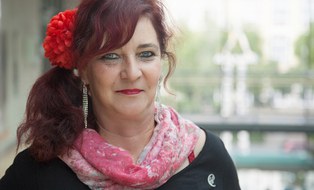 © S. Wiegand
© S. Wiegand
Immatrikulation (Rückm., Beurl. / Exmat.; Außenst. Immat.-Amt, Dt. u. andere EU-Staaten), Kathrin Seiffert
Send encrypted email via the SecureMail portal (for TUD external users only).
Visiting address:
Dekanatsgebäude (Haus 40), EG, Zi. 104 Fiedlerstr. 27
01307 Dresden
Postal address:
TUD Dresden University of Technology Medizinische Fakultät, Referat Lehre Fetscherstr 74
01307 Dresden
Office hours:
- Monday:
- 09:30 - 11:30
- 12:30 - 15:00
- Wednesday:
- 09:30 - 11:30
Ansonsten Termine nach Vereinbarung per eMail


